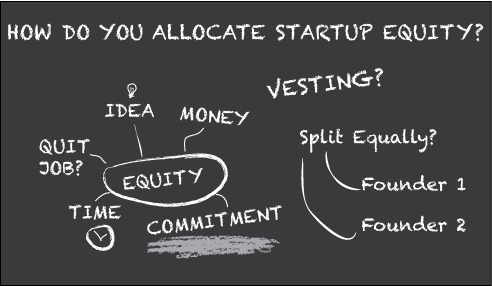
With the advent of crowdfunding and the ongoing changes to how startups might raise capital, prompted by the JOBS Act, entrepreneurs are frequently asking about the role of a broker-dealer. Why? Let’s start from the beginning with an understanding of what exactly is a broker-dealer
An individual, company, or organization that trades securities (a catch-all term for many kinds of investments – stocks and equity ownership in startups, bonds, mutual funds, etc.) for its own account or on behalf of customers is a broker-dealer. Many broker-dealers are independent firms, solely involved in broker-dealer services, many others are business units or subsidiaries of banks or investment firms. When executing trade orders on behalf of a customer, the institution is said to be acting as a broker. When executing trades for its own account, the institution is said to be acting as a dealer.
Such organizations have a few distinct functions:
- Financial consulting, as well as acting as a broker
- Organization and support of liquidity and “market-making” (price announcing, duty of sell and buy of security at announced price, announcing of min and max number of securities that can be bought/sold at announced price, implementing time periods when announced prices are available)
- Many broker-dealers also serve as distributors for mutual fund shares
Why broker-dealers matter
Broker-dealers are incredibly important because they facilitate liquidity — and thus efficient — markets. Liquidity is a measure of the extent to which an organization has cash to meet obligations, or assets that can be quickly converted to do this. Without broker-dealers, buyers and sellers would have trouble finding one another, transactions would be more cumbersome to complete, and inactive stocks would become harder if not impossible to trade.
Through the JOBS Act of 2012, quite a few things are changing as it pertains to who/how investments can be made and you should defer to the SEC directly for the most up to date information: Compliance Guide to the Registration and Regulation of Brokers and Dealers. These changes are most apparent in the role of Crowdfunding and crowd sourced equity based investment in startups. Why? Startups are in great need of funding and such liquidity; broker-dealers can provide that wherein they can source capital for entrepreneurs.
An exemption in the Securities Act allows startups to conduct equity based crowdfunding today, through broker-dealers. Equity Crowdfunding is distinct from the reward based crowdfunding with which you might be familiar with in Kickstarter or Indiegogo; the cash invested in businesses through equity crowdfunding is in exchange for equity in the business – just as is the case with Venture Capital. Licensed broker-dealer crowdfunding platforms can issue securities (equity in the startup) to an unlimited number of accredited investors (typically, individuals with a net worth of more than$1 million, or whose income exceeded $200,000 in the past two years).



Thank you for pointing out that broker-dealers are important because they facility liquidity. Making sure you have the right broker dealer seems very important. Hopefully, anyone looking into investing in a broker dealer looks into getting the best one possible.
well said! it a very important to find a best and professional broker/dealer. they are very helpful for making a big deal in a good way. and thanks for sharing a useful article with us
It’s cool that broker-dealers facilitate efficient markets because that’ll improve life for a lot of people. My dad is thinking of becoming a broker-dealer, so I should tell him what I learned here. This was a really helpful article for someone trying to learn more about this topic so thank you for writing it!
How to raise a capital of company and how to use the broker dealer. All these things can be understand through your post. Your post really helps me a lot in increasing the capital income of the Company. Thanks for sharing this information with us.